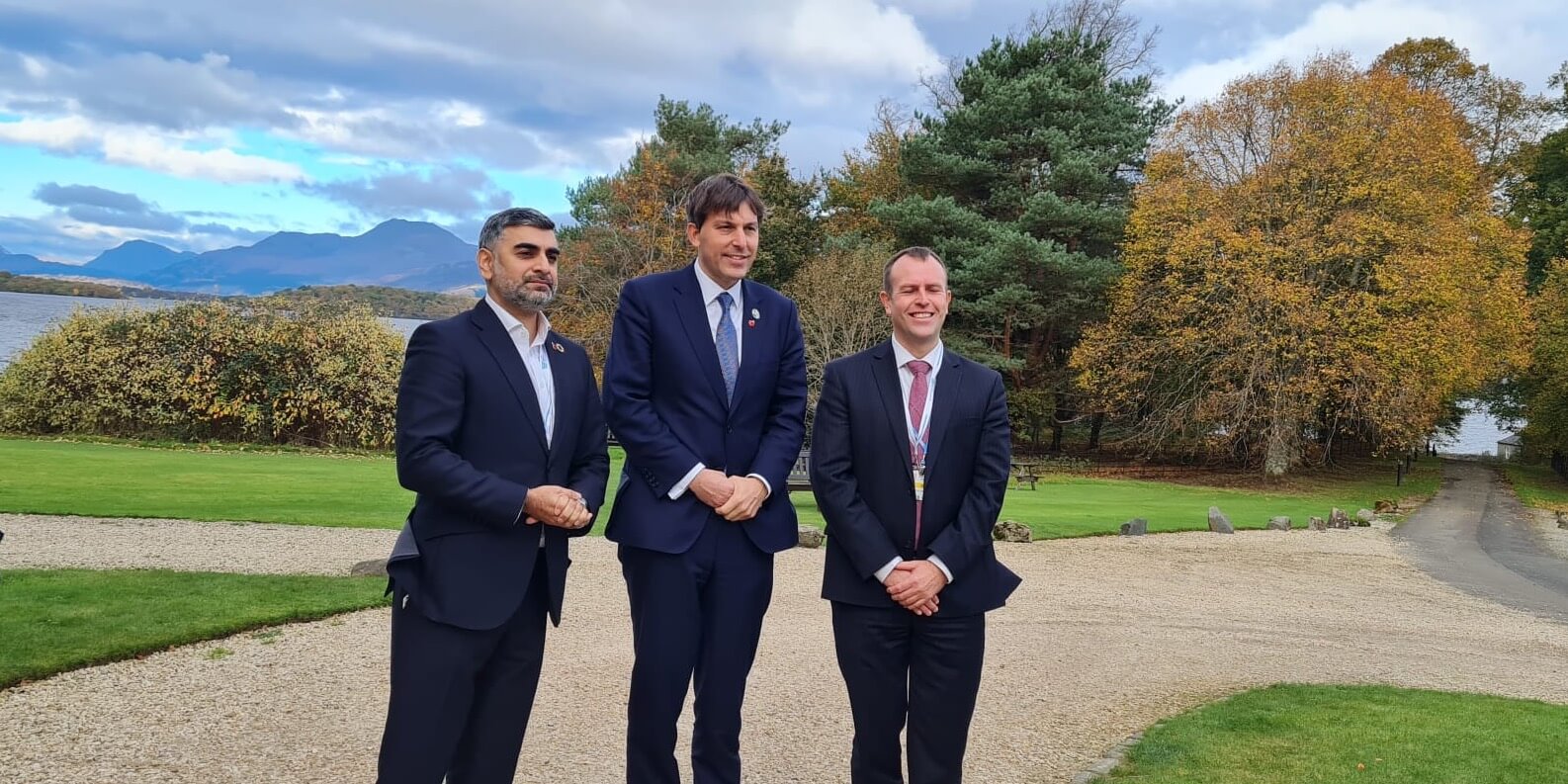Islamic finance stakeholders establish working group to promote green and sustainable sukuk
The three-year initiative seeks to ensure green and sustainable sukuk is highlighted at annual COP summits up to and inclusive of 2023, and to encourage the issuance of such sukuk by all market stakeholders.
Islamic finance industry stakeholders led by the UK Islamic Finance Council (UKIFC) have recently established the High-Level Working Group (HLWG) on green sukuk, which will focus on the development of green and sustainable sukuk.
The working group was initiated at the UKIFC’s Islamic Finance COP26 Programme, which coincided with the UN Climate Summit COP26 in Glasgow. Along with UKIFC, founding members of the group include the UK Treasury, Indonesia’s Finance Ministry, the Islamic Development Bank, the London Stock Exchange Group and the Global Ethical Finance Initiative (GEFI). The UKIFC together with the Global Ethical Finance Initiative will act as Secretariat for the working group.
The HLWG will also seek to assist existing established global standard setting bodies and regulatory initiatives led by the United Nations, IDB and others to encourage better alignment of the Islamic finance industry with the global green and sustainability financial movement. The group will also seek to identify and address specific existing challenges for green and sustainable sukuk on the supply and demand side.
“Unlike past initiatives, nobody has ever formed and focused on a working group that seeks to promote green and sustainable sukuk across different jurisdictions,” said Omar Shaikh, a member of UKIFC’s advisory’s board. The key indicator for success will be more issuance of green and sustainable sukuk, he said.
“The working group aims to help countries achieve their climate goals through the use of Islamic financing instruments. It also seeks to raise awareness of Islamic instruments among conventional asset managers and other stakeholders,” Shaikh added.
Mixed results so far
The HLWG will build upon the work of the Global Islamic Finance, UN Sustainable Development Goals (SDGs) Taskforce and the recent report “Innovation in Islamic Finance: Green Sukuk for SDGs” commissioned by the UNDP Indonesia and the UKIFC.
The report highlighted how green and sustainable sukuk can be a viable financial instrument attracting billions of dollars of capital for green projects that support the delivery of the Paris Agreement. The report further estimated that an additional $30 billion of capital towards the SDGs can be raised by 2025 through green and sustainable sukuk.
Following the Indonesian government’s sale of the world’s first green sovereign sukuk in 2018 and the world’s first sovereign green retail sukuk in 2019, other issuers of green or sustainable sukuk include the Islamic Development Bank and Saudi Electricity Company.
Despite a proliferation of green and sustainable sukuk issuances, UN sustainability frameworks like the Principles for Responsible Banking (PRB) or the Principles for Responsibility Investment (PRI) remain underrepresented in Islamic financial institutions (IFIs) in Organisation for Islamic Cooperation (OIC) countries with few signatories.
Shaikh believes that one of the key challenges for IFI signatories to frameworks like PRI or PRB is that they receive little guidance on how to report and monitor their progress.
“Linked to this is the knowledge and awareness gap of the PRB and PRI among banks and asset managers in OIC countries,” he said.
“While activity of green and sustainable financing in OIC countries has been mixed, there have been specific cases of innovation like Majid Al Futtaim, which has issued green sukuk,” he said. “Similarly, the Government of Pakistan through the State Bank of Pakistan has been trying to implement more standards. We are also seeing development of capital markets in places like the UAE and Nigeria.”
Practitioners believe that lack of investor or shareholder demand has led to a low take-up of the PRB or PRI at IFIs. “Our investors and clients haven’t demanded we sign up to these frameworks,” said one UAE-based portfolio manager, who manages Shariah compliant funds. “A large proportion of shareholders in IFIs, particularly in the GCC, are owned by the government, which is involved in industries like oil and gas.”
“If your clients don’t value it and management doesn’t feel it differentiates them, then I don’t see the push factors to sign up,” expressed one portfolio manager in Malaysia.
However, the UAE-based portfolio manager said recent pledges to be net-zero by Gulf countries like Saudi Arabia, the UAE and Bahrain could move the needle longer term. Saudi Arabia and Bahrain have both recently pledged to be net-zero carbon by 2060, while the UAE has pledged to be carbon neutral by 2050. Omar Shaikh believes that the key will be changing the mindset at IFIs
“Industry bodies like AAOIFI and IIFM need to do more to develop more rigorous sustainability standards and encourage more adoption of these standards.”
© SalaamGateway.com 2021 All Rights Reserved
